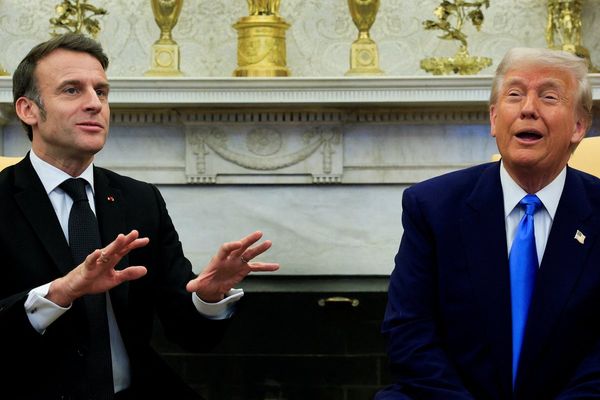The 73,000 inside Old Trafford expected Cristiano Ronaldo to score when he rounded Fraser Forster on Saturday afternoon.
The five-time Ballon d'Or winner's effort was tame and was blocked off the line instead. That was met with audible disappointment from the terraces. Ronaldo has forged his career by scoring goals and yet here he was squandering the most routine of chances. He seemed certain to find the back of the net when receiving the ball and that moment encapsulated United's recent problems.
United have gone ahead against Aston Villa, Middlesbrough, Burnley and Southampton and they've failed to win any of those matches. That's unforgivable. United are incapable of smelling blood and killing off fixtures in pivotal moments and that's proving their undoing under Ralf Rangnick. Their distinct lack of ruthlessness is likely to cost them Champions League football next season.
Ronaldo is the greatest goalscorer football has ever seen and he's been reduced to enduring his longest goal drought in just over a decade. He was anonymous against Southampton, however, Rangnick admitted it's not just about Ronaldo ahead of Saturday's match and he was right. The goals aren't coming as they should across the whole pitch. United are hopelessly wasteful in front of goal.
Rangnick discussed expected goals (xG) after the points were shared at Old Trafford and, while that may seem trivial and just insignificant to some after another woeful second-half display, it wasn't surprising to see the German highlight the statistic.
"Today we had an xG of 2.57 to 0.57 for Southampton. It's not a question of not creating chances, it's a question of not being effective enough," Rangnick said and that was well-disguised criticism of his players. You can't argue with the data. It's objective.
The 63-year-old didn't enjoy the standard honeymoon period upon his interim appointment and his marriage with United already looks dysfunctional. There has been little joy for Rangnick since his arrival but United's expected goals might offer him a degree of comfort.
The statistic has provided some respite from the negativity in recent weeks as it actually points towards relative progress.
It can be argued that it's only the scoreline that matters - that's obviously true as far as the table is concerned - but that old fashioned school of thought is becoming increasingly ignorant. There is now data available in football that can allow us to predict trends, to give a clearer indication of the level of performances and that can help in analysis. It should be embraced, not shunned.
Expected goals (xG) are here to stay in football and it can be a helpful statistic. The metric quantifies a goal-scoring opportunity by assessing a chance based on a number of different variables such as shot location, shot type and other factors.
In layman's terms, xG gives a truer reflection of the level of performance away from scorelines, which can sometimes be deceiving.
United have recorded 8.8 xG over their last three games against Middlesbrough, Burnley and Southampton and yet they've only scored three goals across those fixtures. That's a significant underperformance and it highlights United's wastefulness.
That level of underperformance is unlikely to continue and United's fortunes in front of goal should eventually regress to the mean, which suggests they'll start taking their chances again soon. They are creating too many chances not to eventually score goals.
The name 'xG' is hardly endearing. It sounds like it would be more at home in a chemical lab than in football, but its usefulness can't be denied and it's currently showing that United are performing well in attack, but that they're just not taking their chances.
Anyone watching the Southampton game would have come to that conclusion, but the data reveals the full extent of the problem.
United play Brighton and Leeds next and they shouldn't have a problem scoring if they can maintain their current levels.







